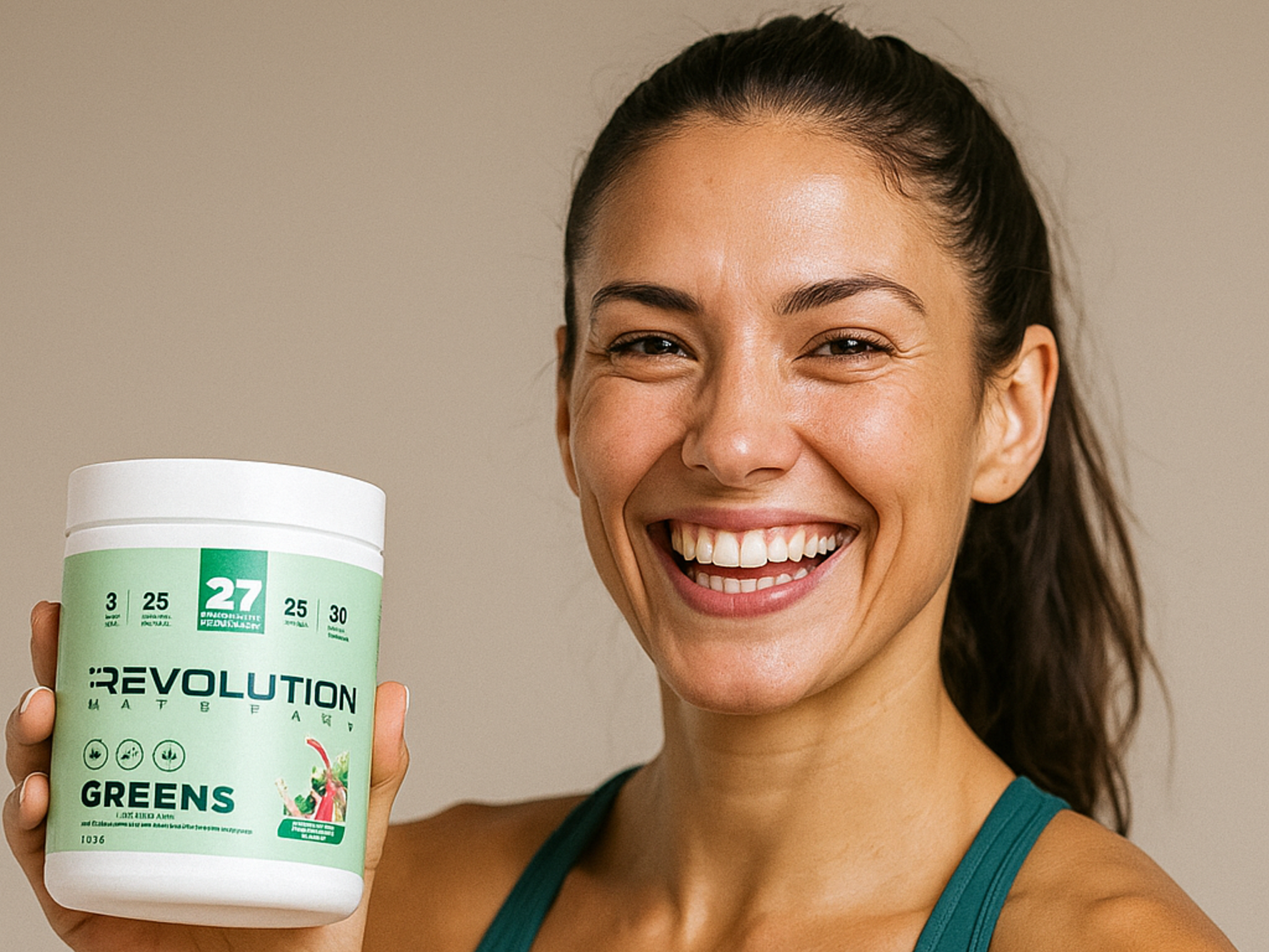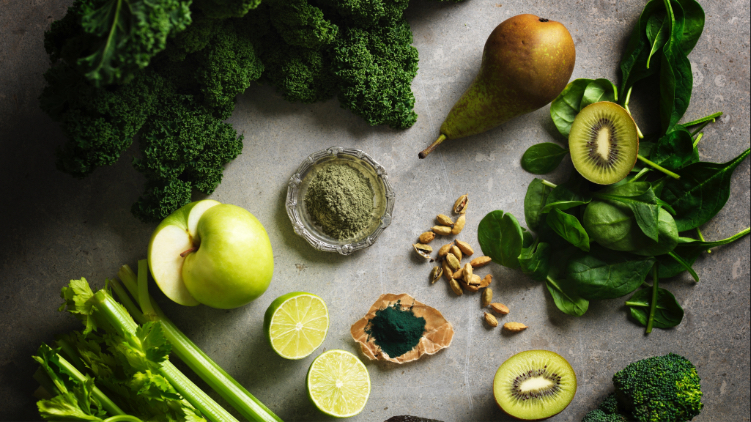
In recent years, green powders have gained significant popularity, often touted as the ultimate superfood solution. This is an excellent option for busy individuals seeking to enhance their nutrition effortlessly. But are these vibrant blends of leafy greens, fruits, and superfoods truly worth the buzz? In this article, we’ll dive deep into the world of green powders. Here, we will evaluate their potential benefits, the scientific backing behind them, and whether they can genuinely replace the wholesome goodness of whole foods. Join us as we unpack the hype and help you make an informed decision about whether these trendy supplements are worth a place in your daily routine.

Green powders have gained popularity as a convenient and effective way to boost daily nutrient intake. This is ideal for individuals who don’t regularly consume enough vegetables. These powders typically blend green, kale, and spirulina, along with other plant-based ingredients, including fruits, herbs, and probiotics. Their main advantage is their dense nutritional content, offering a rich supply of vitamins, minerals, antioxidants, and plant compounds that support overall well-being.
Green powders stand out for their high levels of antioxidants. These compounds actively protect the body against oxidative stress and free radicals, which contribute to the development of chronic illnesses and the aging process. Superfoods like spirulina and chlorella are particularly renowned for their potent antioxidant properties. They can support immune function and improve cellular health. Additionally, green powders often deliver essential nutrients, including vitamins A, C, and K, as well as crucial minerals such as calcium, iron, and magnesium—all of which play vital roles in maintaining bodily functions.
Another benefit of these powders is their contribution to digestive health. Many blends contain dietary fiber, which helps regulate bowel movements and supports a healthy gut environment. Some formulas also contain prebiotic fibers that feed beneficial gut bacteria, aiding in digestion and nutrient absorption.
Manufacturers make green powders using a blend of nutrient-dense ingredients, each chosen for its specific health-supporting properties. They often feature leafy greens such as kale and spinach because these vegetables contain high concentrations of vitamins A, C, and K, as well as minerals like calcium and iron. These nutrients play a role in supporting immune health, promoting strong bones, and maintaining heart health.
Manufacturers frequently use spirulina, a nutrient-packed blue-green algae, for its impressive protein content, abundance of antioxidants, and beneficial fatty acids. In addition to leafy greens, many green powders contain a mix of fruits and berries, which add a sweet flavor and additional nutrients. Manufacturers prize ingredients like acai, goji berries, and blueberries for their high antioxidant content, which helps fight inflammation and boost overall health. Some formulations also include herbs like turmeric and ginger, known for their anti-inflammatory and digestive benefits. These herbs can provide an extra layer of protection against chronic diseases and support the body’s natural detoxification processes.
Probiotics and digestive enzymes are often added to green powder supplements to support gut health and enhance nutrient absorption. Probiotics are beneficial bacteria that help maintain a balanced microbiome, while digestive enzymes assist in breaking down food and absorbing nutrients more efficiently. Other common ingredients may include green tea extract for its metabolism-boosting properties, as well as adaptogenic herbs such as ashwagandha and rhodiola, which help the body cope with stress. This diverse array of ingredients aims to provide a comprehensive nutritional boost, making greens powders a versatile addition to any diet.
While green powders offer a convenient way to boost nutrient intake, it's essential to compare them to whole foods to understand their actual value. Whole foods, such as fresh vegetables, fruits, and grains, are naturally rich in fiber, vitamins, minerals, and antioxidants. They provide a complete package of nutrients that work synergistically to support health. For example, the fiber in whole foods helps regulate digestion, while their diverse nutrient profile supports various bodily functions.
Greens powders provide concentrated sources of nutrients that can complement a diet but should not replace whole foods. One major drawback is that they contain significantly less fiber than whole vegetables. Fiber is essential for gut health and maintaining stable blood sugar levels, and while some greens powders do contain fiber, it is often in lower amounts than what you would get from eating whole vegetables. Additionally, chewing whole foods stimulates digestive enzymes and promotes better nutrient absorption.
Another consideration is the bioavailability of nutrients in greens powders versus whole foods. Bioavailability refers to the extent to which nutrients are absorbed and utilized by the body. Some nutrients are better absorbed when consumed in their natural form within whole foods. For instance, fat-soluble vitamins like A, D, E, and K require dietary fats for optimal absorption, which are naturally present in whole foods but may be lacking in greens powders. Therefore, while green powders can provide a convenient nutrient boost, they should ideally be used to supplement a diet rich in whole foods rather than replace it entirely.

Green powders can be particularly beneficial for certain groups of people. Individuals with busy lifestyles who struggle to consume enough fruits and vegetables may find greens powders a convenient way to supplement their diet. For those who travel frequently or have limited access to fresh produce, greens powders can provide a reliable source of essential nutrients to help maintain their health while on the go.
Athletes and fitness enthusiasts may also benefit from green powders. The high antioxidant content can help reduce oxidative stress and inflammation. This is generally caused by intense physical activity, aiding in recovery and performance. Additionally, the vitamins and minerals in greens powders support energy production and muscle function. Hence, making them an excellent addition to post-workout nutrition.
People with specific dietary restrictions or health conditions might also consider green powders. For instance, those following a vegan or vegetarian diet may use green powders. This ensures they are getting adequate amounts of specific nutrients that are less abundant in plant-based foods, such as vitamin B12 and iron. Individuals with digestive issues may benefit from the probiotics and digestive enzymes found in many green powders. This enhances gut health and nutrient absorption.
Incorporating green powders into your daily habits can be both easy and flexible. A popular method is mixing the powder into smoothies. For this, simply blend it with fruits, vegetables, and a liquid such as almond milk, water, or yogurt. This not only boosts the drink’s nutritional value but also helps soften the often earthy or bitter flavor. Hence, making it more enjoyable for those who might be sensitive to the taste.
Another option is to mix green powders into juices or water. Some people prefer to drink green powders in the morning for a fresh start to their day. At the same time, others might incorporate them after a workout to aid in recovery. Experimenting with different times and methods can help you find what works best for your lifestyle. Greens powders can also be added to various recipes, such as soups, stews, and salad dressings. This method enables you to incorporate the powder into meals without significantly altering their flavor.
Greens powders offer a concentrated and convenient source of essential nutrients. They provide support for those with busy schedules, dietary restrictions, or specific health needs. We’ve explored their benefits, ingredients, and how they compare to whole foods. Potential risks and scientific evidence were also discussed. When used wisely, green powders can be a helpful addition to a balanced diet.